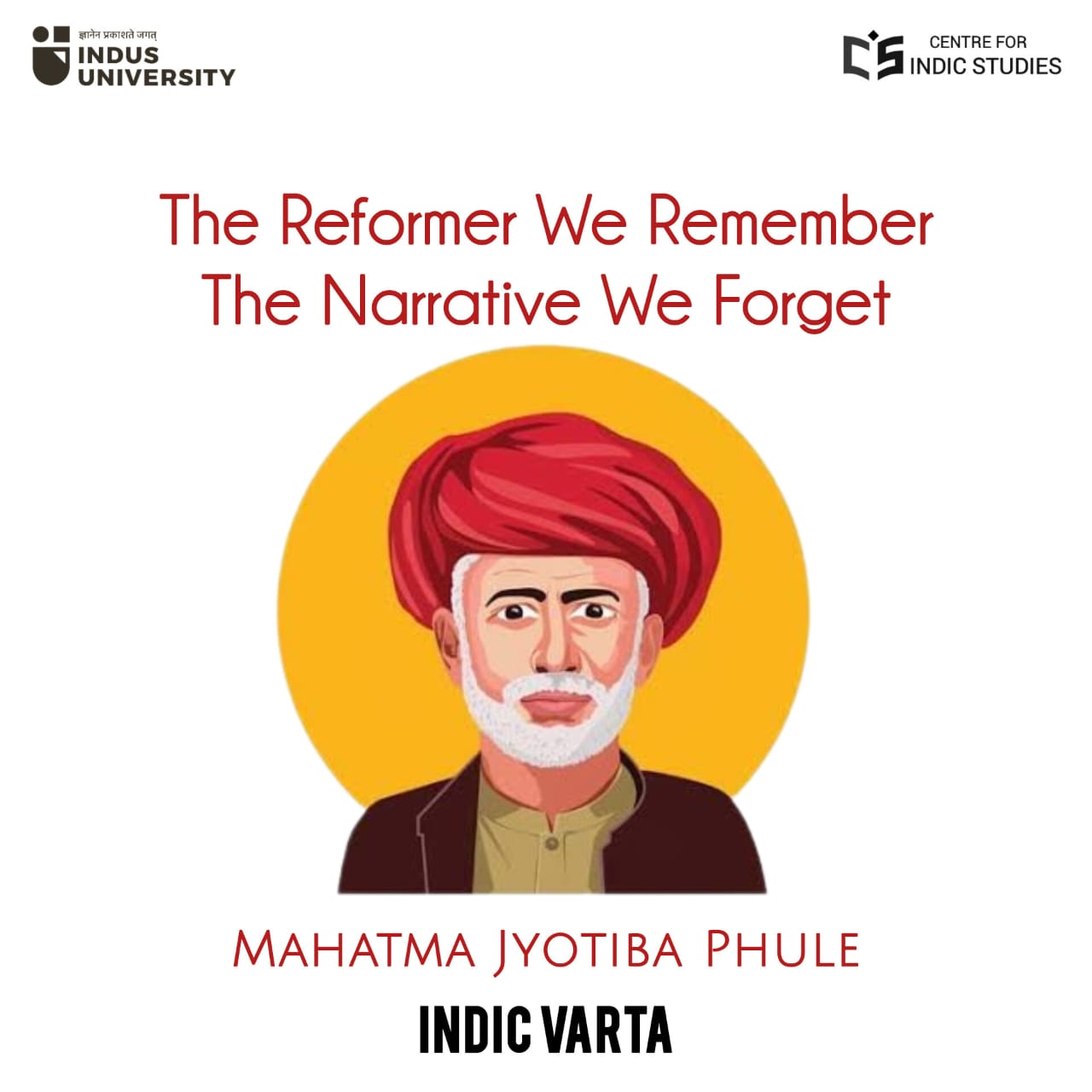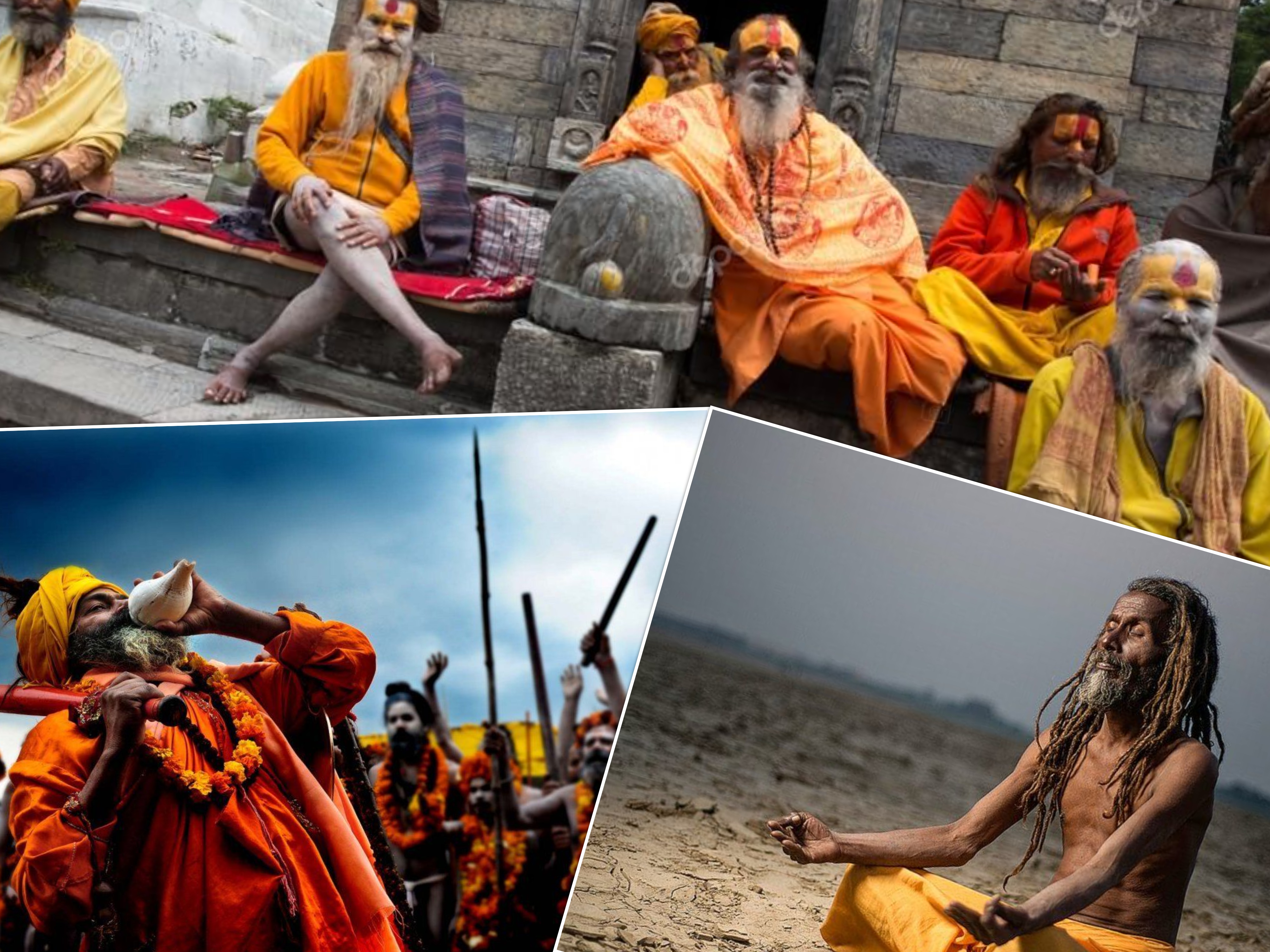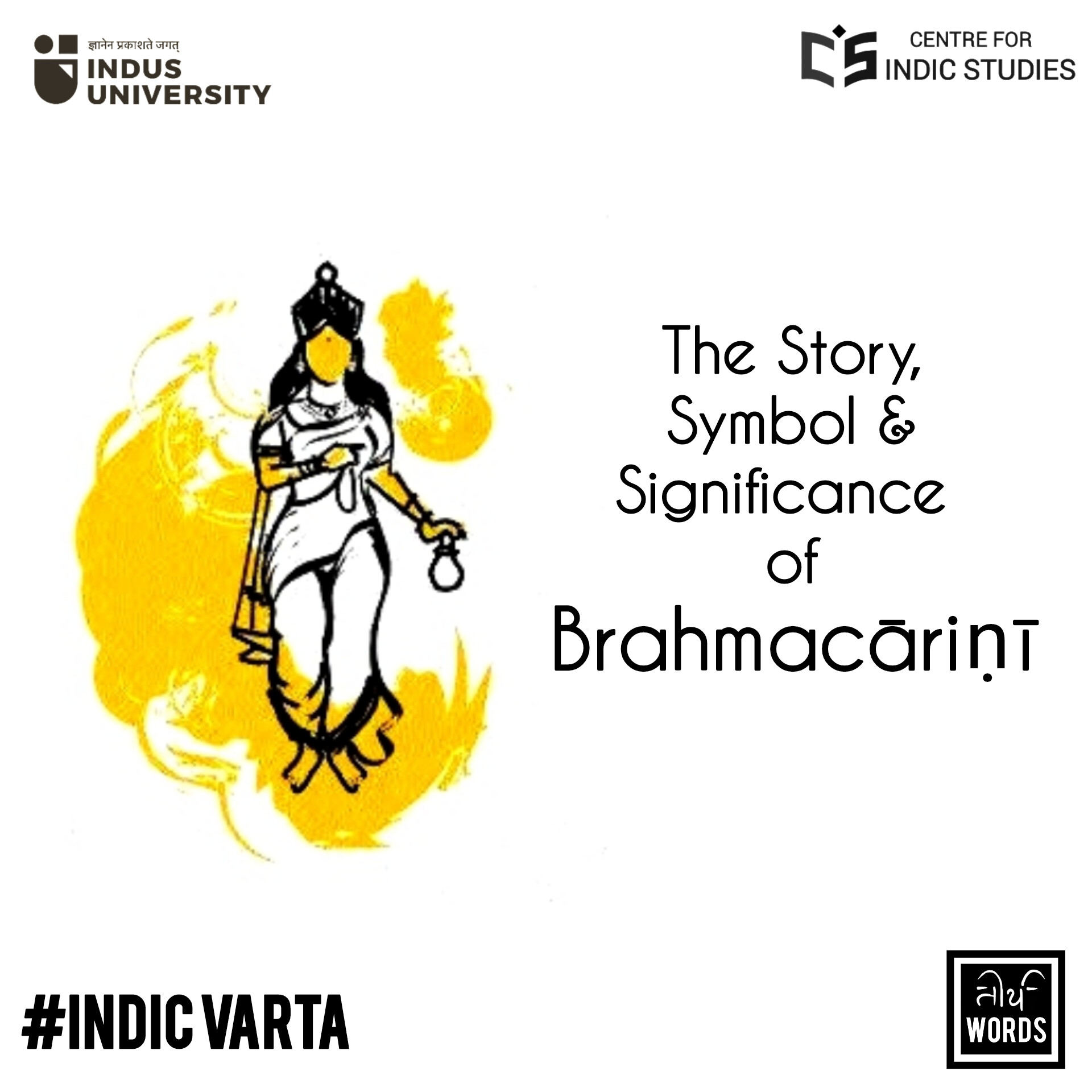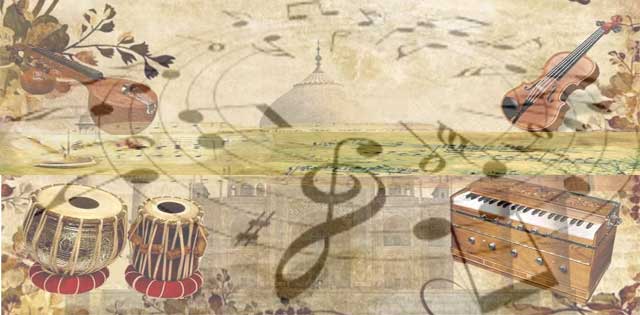- Visitor:420
- Published on: 2025-04-11 11:33 am
Mahatma Jyotiba Phule: The Reformer We Remember, The Narrative We Forget
Christian missionaries, in particular, were quick to draw from Phule’s writings and public work. His comparisons of Brahmins with foreign invaders were quoted gleefully, often out of context, to show that Hindu society was inherently exploitative. Phule’s call for the upliftment of the “Shudras and Ati-Shudras” was gradually merged into a colonial-Christian narrative that portrayed all of Indian tradition, its epics, temples, shastras, and rituals, as instruments of oppression. Ironically, the same colonial state that denied mass education, dismantled indigenous schools, and privileged missionary institutions even in their own country now hailed Phule as a pioneer of education. Why? Because he was reforming against Hindu society and not against British rule. Dharampal's painstaking archival work later revealed that pre-British India had thousands of functioning schools across castes, something even Phule may not have been aware of. But the British weren't interested in restoring that system. They were only interested in highlighting one man’s efforts as proof of their own moral superiority.

As the nation remembers Mahatma Jyotiba Phule on his Jayanti, garlands will be laid, tributes paid, and his name once again invoked in the vocabulary of social justice. Rightfully so, for here was a man who, in the 19th century, dared to speak against entrenched injustice and champion the cause of the forgotten. He, alongside Savitribai, lit the lamp of education in homes that had long been denied its warmth. But as with all iconic figures, the story of Jyotiba Phule is no longer just his own. It has been told and retold, reshaped, reinterpreted, even repurposed, by colonial chroniclers, ideological camps, and political opportunists alike. Today, we are faced not with one Phule, but many: the historical figure, the revolutionary reformer, the icon of resistance, and the image strategically moulded to serve narratives far removed from Bharat’s civilizational spirit.
This essay is not an attempt to diminish Phule’s contributions, but to honour them more truthfully, by asking what parts of his legacy have been highlighted, which ones have been hidden, and why. In peeling back these layers, we may not only rediscover Phule but also confront the larger question: Who gets to shape our reformers, and in whose image?
Who was Jyotiba Phule in reality?
Before the slogans, before the statues, there was a boy born in 1827 in a modest-yet-respected Mali family in Maharashtra. His family name was “Phule” because they were florists by tradition, cultivators of the earth, stewards of life’s softest expressions. But they weren’t poor. Jyotirao’s father owned land, and Phule himself would later become a successful merchant, municipal contractor, and cultivator, owning more than 60 acres near Pune. He wasn’t a product of deprivation; he was a product of dignity.
It is often assumed, even confidently declared, that Phule was a “Dalit.” But this is a historical simplification, if not distortion. Phule belonged to the Mali community, a Shudra group, but very much within the Varna system, and today classified under OBC. He was not “outcast”; he was not “broken” or “crushed” in the sense the term as ‘Dalit’ implies, which he gave to himself. Yet modern narratives club him into a category he neither embodied nor claimed in the rigid sense. And then there’s the story of Savitribai, his wife, co-traveler, and co-reformer. Theirs was no ordinary companionship. At a time when women’s education was an unthinkable act, Jyotiba taught Savitribai to read and write, quietly sparking a revolution that would shake social foundations. Together, they started the first school for girls in Pune in 1848, not for elite Brahmins or merchants who themselves were also not able to achieve in those times, but for those long denied access to learning.
What’s striking is that Phule never used his position as a businessman or landowner to hoard power. Instead, he used it as a launchpad to serve others, especially those beneath the radar of both society and the state. He did not need to fight the system to survive, he chose to fight it to transform it. In many ways, Phule is best understood not as a victim of the system but as an insider who chose dissent, a reformer from within, not a rebel from without
The British, the Missionaries, and the Convenient Icon
The British didn’t just conquer Bharat with armies, they colonized it with ideas, carefully curated stories, and selectively amplified voices. Among their most potent tools was a peculiar fondness for "social reformers", but not just any reformers. They admired those who openly critiqued Indian traditions, especially those that challenged Varna-dharma, family systems, or spiritual hierarchies or else, if not, Swami Dayanand Saraswati would have been their icon. Not because they valued justice or equality, but because such critiques fit perfectly into their imperial mission: to prove that Indian civilization was broken and that the white man’s burden was, indeed, righteous.
In Mahatma Phule, the missionaries and the British officials found a powerful voice they could project, a native who critiqued caste oppression, questioned Brahmanical dominance, and promoted universal education. His concerns were real. His critiques were sincere. But sincerity is no protection from being co-opted. Christian missionaries, in particular, were quick to draw from Phule’s writings and public work. His comparisons of Brahmins with foreign invaders were quoted gleefully, often out of context, to show that Hindu society was inherently exploitative. Phule’s call for the upliftment of the “Shudras and Ati-Shudras” was gradually merged into a colonial-Christian narrative that portrayed all of Indian tradition, its epics, temples, shastras, and rituals, as instruments of oppression. Ironically, the same colonial state that denied mass education, dismantled indigenous schools, and privileged missionary institutions even in their own country now hailed Phule as a pioneer of education. Why? Because he was reforming against Hindu society and not against British rule. Dharampal's painstaking archival work later revealed that pre-British India had thousands of functioning schools across castes, something even Phule may not have been aware of. But the British weren't interested in restoring that system. They were only interested in highlighting one man’s efforts as proof of their own moral superiority.
Let us be clear: this is not a critique of Phule the man. His efforts to challenge discrimination were noble. But it is a critique of how his legacy was packaged, lifted from its context, and used not to uplift Indian society, but to undermine Indian civilization. The tragedy is not that Phule critiqued the society he was part of, that is the right of any thinking being. The tragedy is that his selective portrayal became a battering ram in the colonial assault on Bharatiya knowledge, identity, and cohesion. And somewhere in this grand theatre of empire, Phule stopped being a reformer within his culture, and became a poster child against it.
When Wounds Become Weapons: Phule's Writings and the Colonial Echo Chamber
It is in Jyotiba Phule’s seminal works like Gulamgiri ("Slavery") and Shetkaryacha Asud ("The Cultivator’s Whipcord") that we see the full force of his critique of the Brahmanical order, which he equated with a system of religious enslavement. But these texts, while emotionally charged and driven by a sincere desire to uplift the oppressed, also reveal deep misreading, or rather reinterpretations, of Bharatiya texts like the Puranas.
Phule drew heavily from the ‘anti-Puranic’ imagination encouraged by colonial Orientalists and Christian missionaries. He depicted Brahmins as cunning usurpers, outsiders who manipulated religious narratives to enslave the original inhabitants of India, portraying Shudras and Ati-Shudras as indigenous and noble, and Brahmins as foreign conspirators. In doing so, Phule collapsed spiritual metaphors into political binaries, seeing all religious symbolism through the lens of material domination. The Puranas were not for him poetic reflections of cosmic cycles, inner truths, or dharmic models, they became tools of deceit and hierarchy.
This view, however, did not emerge in a vacuum. Phule was writing at a time when British administrators and missionary scholars were actively reshaping Indian religious texts to suit their colonial narrative, selectively translating, mistranslating, and decontextualizing them. Phule, influenced by this milieu, internalized many of these readings. The result? A ‘whipcord’ not just for the oppressor, but for the very philosophical frameworks that had long held Bharat together. What should have been a call to reform the house became a fire that sought to burn down the very foundation.
Once again, this is not to vilify Phule. He was responding to the real injustices he saw around him. But it is crucial to ask: who shaped the lens through which he saw those injustices? And more importantly, who amplified that lens while silencing others? Why were Phule’s writings, deeply antagonistic to Hindu philosophy, so readily printed, promoted, and praised by Christian missionaries and colonial officials, while indigenous voices that called for reform without rupture were conveniently ignored?
A simple logical question for the readers: Why did the British hold up thinkers like Swami Dayananda Saraswati who offered fierce critiques of caste corruption while reaffirming Vedic wisdom? Why was the reformer who attacked the dharma praised while the one who sought to purify it from within was sidelined? Even today, Gulamgiri is cited as a foundational text in Dalit studies, but its portrayal of Hindu society as irredeemably evil continues to serve ideological goals far removed from Phule’s own context. The metaphor of the "cultivator’s whip" has been turned against the civilization itself. In short, Phule’s anger was real, but the direction it was pointed toward was not entirely his own choosing. And those who held the megaphone ensured that his voice would echo in a direction most useful to them.
The Problem with the Word “Dalit”
Among the many linguistic legacies attributed to Mahatma Phule is the use of the Marathi word ‘Dalit’, meaning “broken” or “crushed”, as a descriptor for communities outside the Varna system. Over time, this term became more than a category. It became an identity, a rallying cry for politics— a wound and a banner both! But does this word, powerful as it is, carry unintended burdens? Let us begin with a simple observation: not all those outside the Varna system were “broken.” Many so-called "outcastes" had robust knowledge systems, professional skills, martial traditions, deep-rooted customs, and even parallel spiritual cosmologies. Their exclusion from mainstream temple or scriptural life did not equate to existential worthlessness. On the contrary, many lived with a sense of dignity anchored in community, purpose, and cosmological order, however, the social relations may have been. To call them “Dalit” is, in one sense, to narrate their political oppression. But in another, subtler sense, it risks framing them forever in terms of woundedness, as if their deepest identity is that of being broken. But is a person only their suffering?
Phule’s intention may have been to name a reality, to give voice to the crushed underfoot. But as with all words, Dalit did not remain a neutral label, it became a psycho-political category, a lens through which individuals were encouraged to view themselves and the world. In this view, society becomes a battlefield of permanent injury and permanent blame. Such a framework leaves little space for healing, transcendence, or reintegration. This is not to dismiss the historical trauma they might or might not have faced. But Bharat’s civilizational wisdom reminds us that trauma can be a passage, not a prison. The word Dalit, however, freezes people into victimhood, it frames history as irreversible and identity as irredeemable. In contrast, many traditional Bharatiya frameworks, whether Vedantic, Bhakti, or Lok, recognized the fluidity of janma and the primacy of karma, dharma, and inner awakening.
We must ask: does calling oneself Dalit empower the spirit, or re-wound it, again and again? And more importantly, did Phule himself foresee that this term, born of righteous rage, would one day become a permanent badge rather than a temporary revolt? In our quest for justice, let us not forget dignity. And in naming our pain, let us not lose sight of our civilizational self-respect that is the core to the idea of civilizational ethos.
Education in India: Was Phule the First?
There is no denying the courage and clarity with which Jyotiba and Savitribai Phule championed the cause of education, particularly girls' education and that of those pushed to the margins of society. In an age where women were largely excluded from formal learning, Savitribai Phule walked to school with stones thrown at her and abuses hurled daily. Together, the Phules opened the first school for girls in 1848 at Bhidewada, Pune. Their efforts laid the foundation for a democratized, humanistic model of learning. But was this the first time that the so-called lower castes or women had access to education in India? Not quite. As cited earlier, Dharampal, a Gandhian thinker and archivist who, in the 1970s, unearthed thousands of pages of British administrative records from the 18th and early 19th centuries, documents that paint a very different picture of pre-colonial Indian education. In his landmark work, The Beautiful Tree: Indigenous Indian Education in the Eighteenth Century, Dharampal presents data from British surveys conducted across the Madras, Bombay, and Bengal Presidencies in the early 1800s. These records, created by the British themselves, reveal a vast network of indigenous schools that were functioning efficiently before being dismantled by colonial interventions. Some key findings from the writings of Dharampal. In Madras Presidency, Thomas Munro’s 1822-25 reports showed 12,498 schools and 1,88,650 students in just a portion of the region. In the Bombay Presidency, surveys in the 1820s across 1,500 villages found over 1,000 functioning schools. In Bengal, William Adam’s 1835 report indicated a widespread educational network with over 100,000 schools. Perhaps most significantly, in Tamil regions, 30% of students were from so-called “lower castes”, including Shudras and what we today call Dalits. In Kerala's Malabar region, Pulayas and other avarna communities were found both teaching and studying in village schools. Girls were not completely excluded. In several regions, especially Bengal, girls’ schools were active before 1830.
What changed? The British, in their pursuit of administrative efficiency and cultural dominance, redirected funding, delegitimized indigenous institutions, and imposed Anglicized models of education. The use of English, the centralization of curriculum, and the destruction of local languages and traditions decimated this civilizational educational ecosystem. So, when Phule began his mission in 1848, he was not planting seeds in barren land. He was sowing into soil already ravaged by colonial bulldozers. His achievement, then, is not that he “invented” education for the marginalized. It is that he revived its spirit in a society that was rapidly forgetting its own roots. But to present Phule, and only Phule, as the origin point of education for the oppressed is to erase a thousand years of civilizational effort, much of which was organically inclusive, plural, and locally rooted.
A Misunderstood Legacy
What we must question is not Phule’s role, but the historical narrative that was constructed around him. A narrative that suggests that before the British and before Phule, Bharat was an unlit, casteist wasteland. This is not only false, but also dangerous. Because it cuts off the present from its past and replaces reform with rupture. To honour Phule is not to erase the millions who came before him, but to place him rightly within a continuum: as a reformer, not a founder, as a restorer, not a civilizational outsider. That is the true dignity of his work.
The Many Phules: Man, Symbol, and Manufactured Image
Every age creates its own heroes, but not always in honest ways. Jyotiba Phule, in his lifetime, was a reformer with fierce moral conviction, deeply rooted in his context, caste, language, and region. But over the decades, "Phule" has become many things, a man, a movement, a myth, and at times, a manipulated symbol.
There is the historical Phule, born into the Mali caste, who worked tirelessly alongside Savitribai for the upliftment of women and those marginalized by caste and ritual hierarchies. There is also the political Phule, invoked by parties and movements across the ideological spectrum, selectively quoted to serve agendas, some sincere, others simply strategic. And then, there is the Phule of textbooks, a solitary social reformer in a black-and-white morality play, painted as the lone light in a sea of oppressive Brahmanism, without nuance or balance. This Phule is often disconnected from his own faith, stripped of his merchant identity, detached from his Maharashtrian social fabric, and re-invented as a radical revolutionary modelled more on 20th-century ideologies than 19th-century realities. Colonial administrators and missionary ideologues often found in Phule’s anti-caste writings a perfect tool to delegitimize the spiritual and social authority of Indian traditions. His critiques of Brahmanism, sincere and historically grounded though they were, were lifted, magnified, and amplified out of context to paint the entire Indian civilization as rotten from the root. Later political forces in independent India adopted the same template. Phule became a "usable past", not as a thinker who could invite honest reflection, but as a convenient stick to beat tradition with. His complexity was reduced to confrontation, his spirituality was flattened into secularism, and his reformist instincts were repackaged as revolutionary rupture.
The Risk of Symbolic Overuse
When a man becomes a symbol, he often stops being a human being. We risk doing injustice to Phule not by forgetting him, but by oversimplifying him. His life, like all great lives, was full of paradoxes: a critic of Brahmanical dominance who still operated within the cultural language of Maharashtra; a reformer inspired by Western liberalism but deeply engaged in Indian social realities; a man of modest roots who became a prosperous businessman; a fighter against exclusion who never fully severed his civilizational ties. There is a philosophical risk in turning reformers into political mascots. We stop learning from them and begin using them. In doing so, we freeze their ideas, ignore their context, and weaponize their words. Jyotiba Phule deserves better than that.
What We Must Learn from Phule
On Phule Jayanti, it is tempting to light lamps, post quotes, and move on. But the true homage is not in celebration; it is in contemplation. Mahatma Jyotiba Phule lived in a time when society was cracking under colonial extraction, cultural stagnation, and internal inequalities. He responded not by burning down the house of tradition, but by building doors and windows for those left outside. His was a call not for hatred, but for inclusion, not for revenge, but for restoration. And yet, over time, his image has been co-opted by ideological interests—first by colonial rulers and missionaries who found his anti-Brahmanism useful in weakening Indian unity, and later by modern political actors who used him as a symbol to create further division, rather than repair. We must liberate Phule from this imprisonment, not to whitewash his critiques, but to understand them in the fullness of their historical and civilizational context. We must see that while he opposed Brahmanical excess, he was not against dharma itself. While he spoke out against injustice, he did not subscribe to the total rejection of Bharatiya civilizational frameworks. He should not be remembered as a pawn in a colonial narrative that saw Indian society as permanently broken and in need of foreign ‘saviours.’ Nor should he be turned into a hyper-modern radical icon detached from the soil he came from.
Instead, we must see him as he was: a child of Bharat, who sought to reform his society from within, not to replace it with something alien. His work in women’s education, his courage to challenge stagnant norms, and his pioneering community initiatives deserve deep respect. But so too does our responsibility to protect his legacy from ideological distortion.
As we remember Mahatma Phule today, let us ask, not just what he said, but why he said it, and who now uses his words, and for what purpose. Let us recover the Phule who was a man of his moment, with ideas for all moments, but whose meanings have been lost in translation, often by design. He need not be a weapon in a war of narratives. Let him instead be a mirror, reflecting both the flaws and the potential of Bharatiya society. That would be a tribute worthy of his name.
- 210 min read
- 8
- 0










